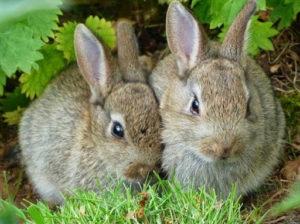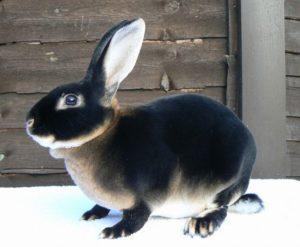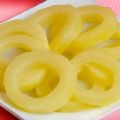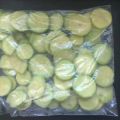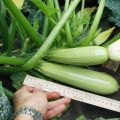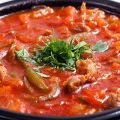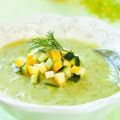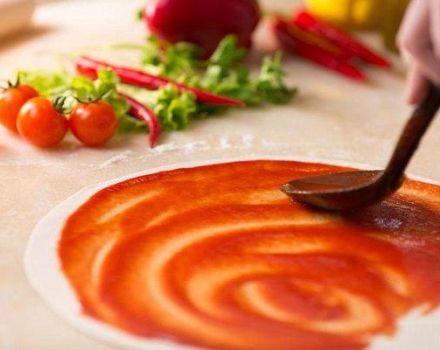Is it possible and how to properly give zucchini to rabbits, contraindications and harm
Experienced farmers know how tender and sensitive the digestive system of rabbits is, so a reasonable question arises whether rabbits can be given vegetables, for example, zucchini. It is known that it is impossible to feed rodents with dry food alone; the menu must include juicy food: fresh vegetables, root vegetables, potatoes, leafy greens. Zucchini for rabbits is a source of nutrients and fiber that can be beneficial for adherence.
Can rabbits eat squash?
It is possible, and even useful, to treat rabbits with zucchini. This vegetable belongs to the juicy green food, which must be present in the diet of rodents. The nutritional value of zucchini is low, there are only 6.8-9.6 feed units per 100 kg of vegetable pulp. Therefore, this product is not given to rabbits as a source of calories for fattening, but as a supplement rich in vitamins and nutrients that strengthens the animal's body.
Both food and fodder varieties of vegetables are suitable as rabbit food. The nutritional value of fodder squash is about the same as that of fodder beet.
Zucchini supplies the animal with:
- ascorbic acid (vitamin C);
- fiber, which has a positive effect on digestion;
- B-group vitamins (B3, B6, B9);
- phylloquinone (vitamin K);
- mineral elements - calcium, potassium, phosphorus, magnesium;
- malic and other organic acids.
You can treat both decorative and meat-and-wool rodents with a juicy vegetable. It is readily consumed by both adults and young individuals. As a rich source of vitamins and minerals, zucchini is recommended to be given to individuals intended for mating, pregnant and nursing rabbits. The succulent culture is believed to enhance the production of breast milk in the female.
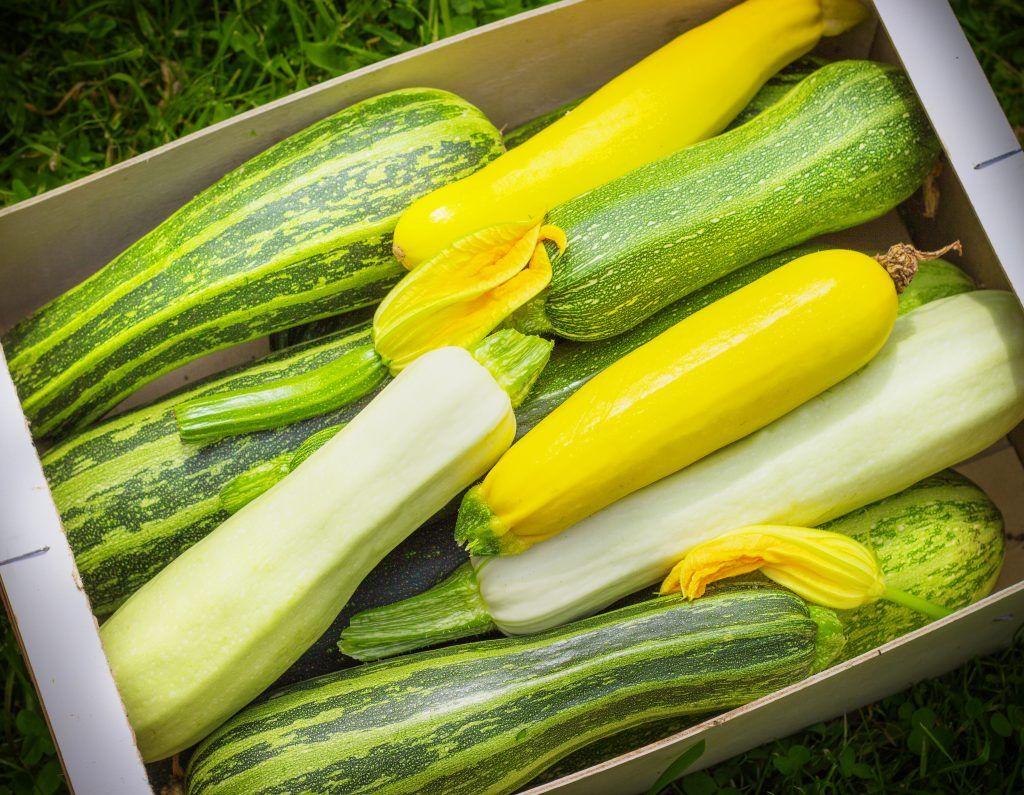
Thanks to the nutrients included in the composition, zucchini in the animal's body:
- normalizes the work of the heart and vascular system;
- stimulates hematopoiesis;
- has an antioxidant effect;
- normalizes the functional state of the nervous system;
- increases tone and activity;
- improves the functioning of the reproductive organs.
At what age can you enter the diet?
Zucchini can be treated to rabbits from 2 months of age. However, experienced farmers advise introducing the vegetable into the diet when the animals are 4 months old. By this time, the digestive tract is already starting to work fully in young animals, due to which the assimilation of new food is easier. The introduction of squash into the diet, like any new product, should be gradual. Each time the portion is increased slightly.

For young individuals, the vegetable is cut into small pieces to make it easier to eat.Or grind on a grater with large holes, add to a grain or vegetable mash. For adult pets, it is recommended to give the vegetable mixed with corn silage.
In what form can you feed?
Usually raw zucchini is given to rabbits. You can also give a boiled vegetable, but it will contain much less nutrients. Young fruit, which does not yet contain achenes, can be given to rabbits whole without cutting off the skin. The old vegetable has a hard skin that needs to be cut off. The seeds must also be removed.
Since rabbits are herbivorous mammals, they gladly eat not only juicy pulp, but also squash leaves. The tops can be added to the rabbit diet throughout the growing season; both leaves and shoots are suitable as forage.
Greens are also given fresh, but so that digestion is not disturbed in rabbits, they are dried and crushed, less often they are turned into silage. It is advisable to mix zucchini tops with compound feed, legumes, bran or greens of other vegetable crops, you can also add it to a wet mash. Usually, the body of rabbits accepts squash tops well, but feeding it to pets every day is still not worth it.
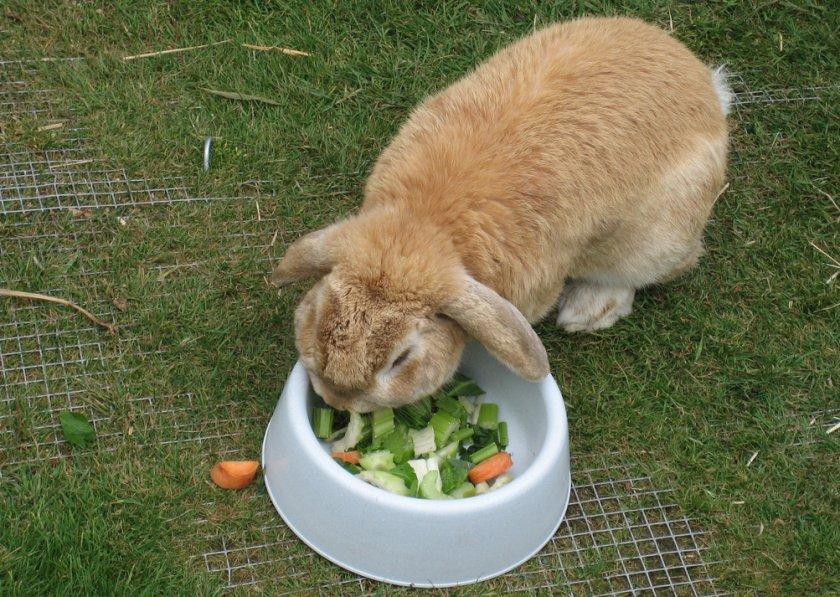
If you want pets to feast on zucchini not only in the warm season, but also in winter, then you can make a blank. For this:
- fruits of a winter variety of medium size are selected without scratches and traces of decay (the length of the fruit stem must be at least 5 cm);
- vegetables are cleaned of sand and dirt, put in a warm and dry place so that the fruit leg dries out;
- transfer the zucchini to a cellar or other dry and cool place where the temperature is kept at a level of +5 to +10 ° C;
- folded so that the fruits do not touch.
Are there any harm and contraindications?
Although zucchini is a source of nutrients for rabbits, you should not include it in your diet every day and in large portions. A juicy vegetable is loaded with fiber, which normalizes digestion when consumed in moderation, but causes diarrhea, excess gas and an imbalance of intestinal microflora if the rabbit is consumed in excessive amounts.
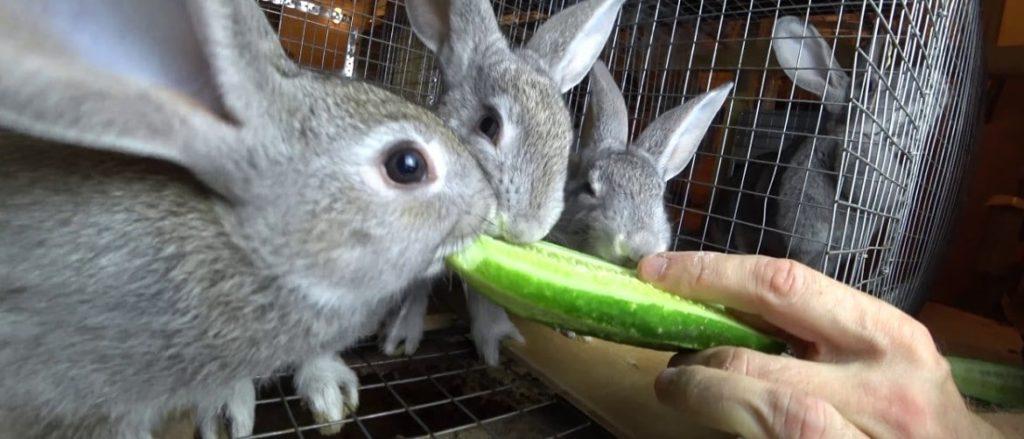
To avoid problems with digestion of pets, you should observe the daily intake of 200 g of juicy feed per adult. For rabbits, the daily portion should be even less. Moreover, this amount can include either one zucchini or a mixture of different vegetables. It is much healthier for the rabbit to eat vegetable mash: zucchini, pumpkin, carrots, potatoes.
Experienced breeders do not advise treating rabbits with zucchini every day. It is enough to give a treat 2-3 times a week. It is categorically impossible to make a diet from only one juicy food. It should be remembered that the rabbit should eat 70% of dry food per day. And only the remaining 30% are vegetables and herbs.
The fruit prepared for food must be cleaned of sand and earth, otherwise the pets will have a digestive upset. Rotten areas are also cut out of the pulp, otherwise the rabbits will be poisoned.
Zucchini is a healthy food for rabbits. The substances contained in it correspond to the substances obtained by rodents in their natural habitat. Therefore, the inclusion of vegetable crops in the diet ensures the full development of the herbivore's body.
